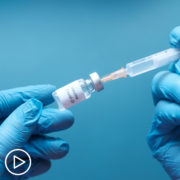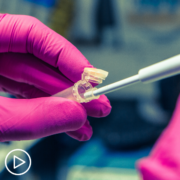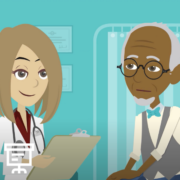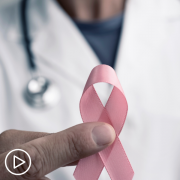What Factors Help Guide Metastatic Breast Cancer Treatment Decisions?
What Factors Help Guide Metastatic Breast Cancer Treatment Decisions? from Patient Empowerment Network on Vimeo.
What treatment is best for your metastatic breast cancer? Dr. Halle Moore of Cleveland Clinic reviews important considerations when choosing a therapy, including the role of molecular testing.
Dr. Halle Moore is Director of Medical Breast Oncology at the Cleveland Clinic. Learn more about Dr. Moore, here.
See More From Engage Breast Cancer
Related Programs:

COVID-19 Vaccination: What Do Breast Cancer Patients Need to Know? |

|

Metastatic Breast Cancer Treatment Decisions: Which Path is Best for You? |
Transcript
Dr. Halle Moore:
For patients with advanced breast cancer, some of the major factors that affect our treatment decisions are first the receptor results. This includes the ER and PR, which are the hormone receptors, as well as HER2. These receptors really guide the initial treatment options.
In addition, the patient’s overall health status is an important factor in treatment decisions. And then the prior treatment history, what the patient has previously received, either in an earlier stage of disease or previously for their advanced cancer.
Molecular testing for metastatic breast has gone from something that was primarily used only in the research setting to something that is now quite valuable in making treatment decisions every day in the clinic.
The results of molecular testing may indicate whether our patients are eligible to receive certain treatments, such as immunotherapy or certain targeted cancer treatments. We also have an increasing number of clinical trials that are testing treatments targeted to the molecular drivers of an individual’s cancer.
I would say one of the most interesting new approaches in the treatment of metastatic breast cancer is the use of antibody drug conjugates. These combine an antibody against a target that’s likely to be present on cancer cells more so than on normal cells in the body.
And, typically, a very potent chemotherapy drug is combined with the antibody. The antibody then allows for delivery of a high concentration of this chemotherapy drug preferentially to the cancer cells allowing for very effective treatment of the cancer while limiting toxicity from the treatment to the rest of the body.










